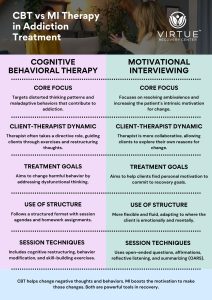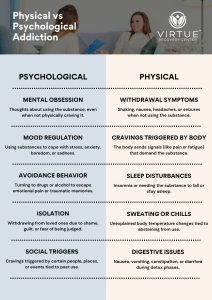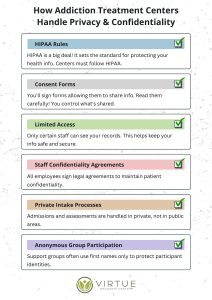Key Takeaways:
- Ketamine is a dissociative anesthetic used medically, but its recreational misuse is increasing.
- Physical side effects include dizziness, nausea, and cardiovascular issues, which can be dangerous.
- Psychological risks involve dissociation, hallucinations, and cognitive impairment over time.
- Addiction and dependency are severe risks for chronic users, who may also experience bladder damage.
- Medical supervision is essential when using ketamine, especially for those at risk of complications.
Introduction
Ketamine is a powerful anesthetic commonly used in hospitals and, more recently, to treat depression that resists other treatments. However, its growing misuse as a recreational drug presents significant health risks. Whether used for medical reasons or recreationally, ketamine affects both the body and mind, with potential side effects ranging from dizziness to life-threatening complications.
What Is Ketamine?
Ketamine is classified as a dissociative anesthetic, meaning it can make users feel disconnected from their surroundings and even from their bodies. Medically, ketamine is used during surgery and for pain management. More recently, it has been employed in low doses to treat patients with severe depression when other treatments have failed.
Physical Side Effects of Ketamine
Despite its medical uses, ketamine poses various risks, significantly when misused. One of the most common physical side effects is dizziness, impairing coordination and reflexes. Many users also report nausea and vomiting, particularly when taken in large doses.
In addition, ketamine can affect the cardiovascular system, increasing both heart rate and blood pressure. While this may not pose a problem for everyone, individuals with pre-existing heart conditions are at a much higher risk.
At higher doses, ketamine can lead to respiratory depression, meaning it can slow or stop breathing altogether. This is especially dangerous when combined with other depressants like alcohol or opioids, increasing the likelihood of overdose.
Psychological Side Effects
Ketamine’s most notorious psychological effects include dissociation and hallucinations. Because ketamine disrupts communication between the brain and the body, users often experience out-of-body sensations or vivid hallucinations. While these may seem intriguing or fun, they can lead to confusion and panic.
Long-term use or high doses can lead to cognitive impairment, affecting memory and decision-making abilities. Over time, chronic users may also develop psychological dependency on the drug, finding it difficult to function without it.
For people with pre-existing mental health conditions like schizophrenia or bipolar disorder, ketamine can worsen symptoms, causing episodes of psychosis or severe mood swings.
Long-Term Health Risks
One of the more severe long-term risks of ketamine misuse is damage to the bladder and urinary tract. Frequent ketamine users can develop a condition known as ketamine-induced cystitis, which causes chronic bladder pain, frequent urination, and even permanent bladder damage.
There is also a risk of brain damage with prolonged use, particularly when large doses are used regularly. The cognitive effects can become permanent, leading to memory loss and reduced intellectual function.
Who Is at Risk?
Recreational users, particularly those who use ketamine frequently or in high doses, are most at risk for these side effects. However, individuals with pre-existing conditions like heart disease, respiratory issues, or mental health disorders are also at higher risk of complications, even when ketamine is used under medical supervision.
The Importance of Medical Supervision
When used appropriately, ketamine can offer significant medical benefits, particularly in anesthesia and depression treatment. However, its misuse—especially without medical supervision—carries severe risks. Medical professionals can monitor the dosage and frequency of use to minimize side effects and reduce the likelihood of long-term harm.
Conclusion
While ketamine has its place in medical treatments, the risks associated with misuse are undeniable. From physical side effects like dizziness and respiratory issues to long-term damage to the brain and bladder, ketamine misuse can be dangerous and even life-threatening. If you or a loved one is struggling with ketamine misuse or addiction, professional treatment is essential for recovery.
For more information on ketamine addiction treatment, call Virtue Recovery Las Vegas at 866-520-2861.
FAQs
Can ketamine cause long-term damage?
Yes, chronic ketamine misuse can lead to long-term damage, including bladder issues and cognitive decline.
What are the most common side effects of ketamine?
Common side effects include dizziness, nausea, increased heart rate, and hallucinations.
How does ketamine affect mental health?
Ketamine can cause dissociation and hallucinations, and long-term use may lead to cognitive impairment and worsen pre-existing mental health conditions.
Is ketamine addictive?
Yes, ketamine can be psychologically addictive, mainly when used recreationally or at high doses.
What should I do if I think someone is abusing ketamine?
If you suspect someone is abusing ketamine, it’s essential to seek professional help immediately. Call 866-520-2861 for more information on treatment options.
What organs does ket affect?
Ketamine affects multiple organs, including the brain, heart, and urinary system. It alters brain function by affecting neurotransmitters, leading to dissociative effects, while it can also impact the heart by increasing blood pressure and heart rate. Long-term use may cause damage to the bladder and kidneys.
How long do the side effects of ketamine last?
The immediate side effects of ketamine, such as dissociation, confusion, and altered perception, typically last 45 minutes to an hour after use. However, lingering effects like drowsiness or cognitive impairment may last several hours, and long-term use can lead to chronic side effects such as bladder issues and memory problems.
What are the adverse effects of ketamine?
Adverse effects of ketamine include dizziness, confusion, nausea, increased heart rate, and hallucinations. Long-term misuse can result in bladder damage, memory loss, cognitive decline, and addiction. High doses can also lead to dangerously altered perception and difficulty breathing.
How is ketamine used?
Medically, ketamine is used as an anesthetic and in low doses for treating depression and chronic pain. Recreationally, it is misused as a dissociative drug, typically snorted, injected, or swallowed in pill form for its hallucinogenic effects.
What does ketamine look like?
Ketamine typically comes in a clear liquid form for medical use or as a white crystalline powder when sold illicitly. It can also be found as a pill, depending on its intended use or method of administration.
What is ketamine cut with?
Illicit ketamine is often cut with other substances such as caffeine, talcum powder, or other drugs like MDMA to increase volume and profits. This increases the risk of unknown side effects and complications for users.
When should you contact your healthcare provider about ketamine side effects?
You should contact your healthcare provider if you experience severe side effects such as difficulty breathing, chest pain, confusion, extreme agitation, or if urinary issues like blood in the urine or painful urination develop. Any long-lasting or concerning symptoms after ketamine use warrant immediate medical attention.
What are some signs of ketamine addiction?
Signs of ketamine addiction include cravings, frequent use despite negative consequences, developing a tolerance (needing more to achieve the same effect), and withdrawal symptoms like anxiety or depression when not using. Users may also neglect responsibilities or relationships due to their ketamine use.
Are there risks of taking ketamine with other drugs?
Yes, combining ketamine with other drugs, such as alcohol, opioids, or stimulants, increases the risk of dangerous side effects, including respiratory depression, extreme sedation, or heart issues. Mixing substances can also lead to unpredictable impacts and a higher chance of overdose.
What are the adverse effects of ketamine?
Adverse effects of ketamine include confusion, hallucinations, impaired motor function, increased heart rate, and urinary problems. Long-term misuse can lead to bladder damage, memory issues, and cognitive decline, and in severe cases, users may experience “K-hole” dissociation, where they feel detached from reality.
Does ketamine cause dizziness?
Yes, dizziness is a common side effect of ketamine use. This dissociative drug can impair coordination and balance, leading to lightheadedness or a sensation of spinning.
Can ketamine misuse lead to nausea and vomiting?
Yes, ketamine misuse can lead to nausea and vomiting, mainly when used in high doses. These side effects can occur shortly after using the drug, especially when combined with other substances.
Does ketamine cause increased blood pressure?
Yes, ketamine can cause increased blood pressure and heart rate, especially during the early stages of use. This can pose a risk for individuals with underlying cardiovascular conditions or when taken in high doses.
What are the potential side effects and health risks of using ketamine in a residential treatment setting?
When considering the use of ketamine in a residential treatment setting, it is important to be aware of the potential side effects and health risks. While ketamine can be a valuable tool for treating certain mental health conditions, it is important to weigh the risks and benefits, and explore other residential treatment necessity options available to ensure the appropriate course of action is taken.
Resources
https://www.dea.gov/sites/default/files/2020-06/Ketamine-2020.pdf













